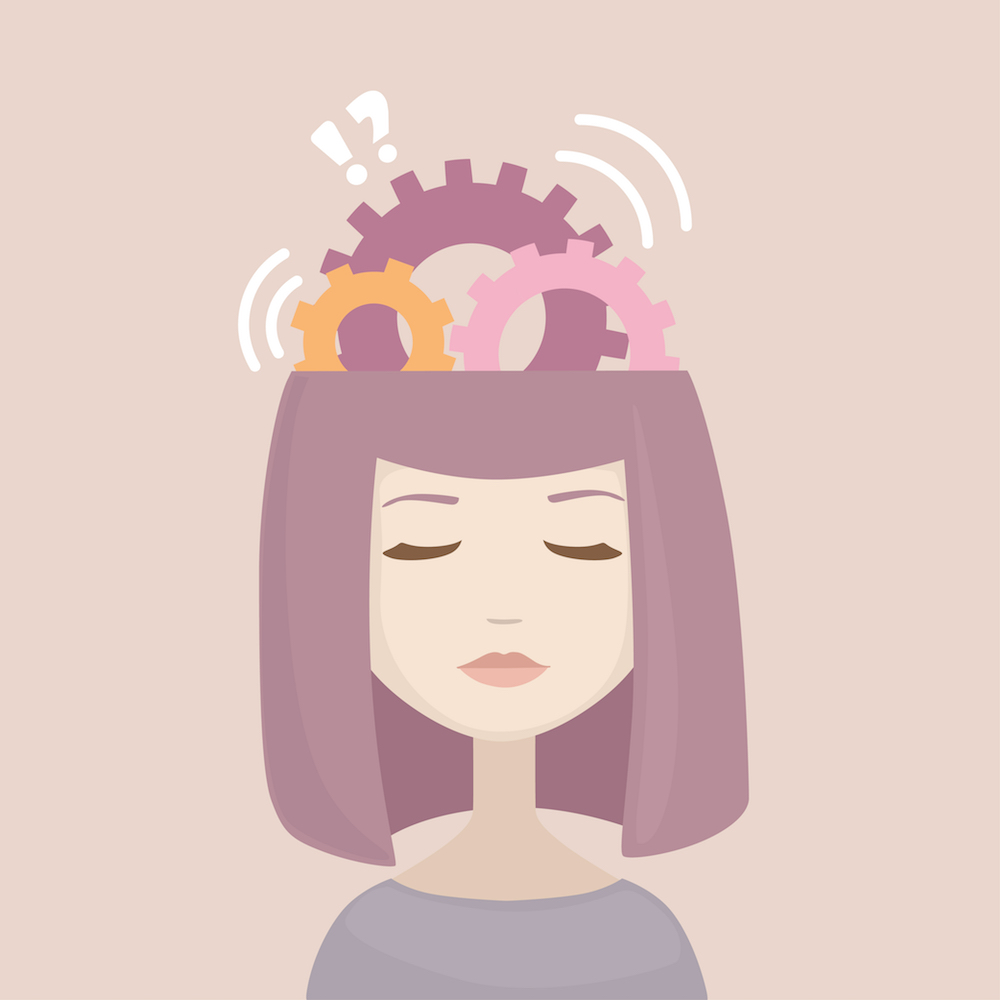
Do you churn pessimistic thoughts over and over in your head? Is it becoming unpleasant, or unhealthy? We can help you!

From time to time, we all struggle with negative thoughts. Regardless of how they’re triggered, one unpleasant thought can lead to another, causing us to lose perspective. In addition, we might also become more irritable and forgetful, or feel exhausted all the time.
Persistent negative thinking can seriously impact our mental wellbeing. The good news is that the spiral can be broken! The more you practise the following techniques, the less likely you are to get sucked into the vortex.
1. Practise gratitude
The problem with getting stuck in a negative spiral is that our minds forget to notice all the good things going on in our lives. So, we need to nudge ourselves to remember the positive. Every night before you go to sleep, write down at least five good things that happened that day. It can be anything, even eating a biscuit, as long as it made you feel good for just a second.
Doing this daily will not only create a healthier energy in the moment (which will counter-balance negative thoughts) but will also train your mind to focus more on positive thoughts rather than wallowing in negative ones.
2. Challenge your thoughts
We all occasionally fall into the trap of taking our beliefs at face value. However, sometimes we overthink situations and distort the reality of that situation, which further darkens our thoughts and makes us feel worse. Take one of your negative thoughts and ask yourself whether you’re doing one of the following:
- Are you blaming yourself for something? This is often unfair on yourself. Tell yourself it’s just your impression. Situations are always more than one person’s responsibility.
- If you are conjuring catastrophic scenarios, ask yourself: Is this really happening? You’ll find the things you stress about often don’t exist in the moment, and you have no guarantee they will ever happen.
3. Ground yourself
Once we’re in a spiral of negative thinking, it can be difficult to to move our attention away from our mind and focus it on our body. However, training your mind to avoid over-engaging with your thoughts is key to ensuring that you don’t get carried away by every small thing that happens. Doing a simple grounding exercise for 10 minutes every morning can really help you to focus on the present:
Sit comfortably and push your feet against the floor as hard as possible, notice the physical feeling of this.
Touch something – a pillow, a book, a radiator, whatever! – and notice the feeling of the object against your fingertips.

When a negative thought comes up, picture placing it on a little paper boat and letting it float away on the water
4. Don’t judge yourself
Judging ourselves for feeling bad will only make us feel even worse. So why do we do it? Because it’s so hard to stop ourselves! Beating yourself up about that verbal altercation you had in the office with your co-worker, or that silly little run-in at the supermarket counter, or that harsh glance from your partner over dinner, seems irrelevant and counter-productive when others are literally starving, suffering and dying.
Manage the context. First, acknowledge that you are judging yourself for feeling bad. This will go some way in alleviating your distress. Then, decide to let the judgement go, even if just for a minute. Take a deep breath and then, on the exhale, let the judgement leave your body. The more you do this, the more your mind will get used to letting negative feelings fade quicker.
5. Let negativity float away
The problem with negative thoughts and feelings is that we get so caught up in them that we forget we can just make a decision to let them go. Literally, like that. This requires a little imagination, but it really works! When a negative thought comes up, picture placing it on a little paper boat and then letting it float away on the water. Don’t try to stop it, just allow it get further and further from you. This trains your mind to let negative thoughts go rather than trying to stop them – which only makes matters worse.
6. Speak to a friend
This sounds obvious, right? But you’d be surprised how many of us bottle up our feelings inside for fear of being judged or misunderstood. However, sharing our worries honestly and without prejudice with someone who cares about you has been demonstrated to reduce stress and anxiety.
Try telling a close friend how you’re really feeling. Be honest and candid with them. Your friend will likely see the situation from a completely different angle to you, which will help you find a wider perspective. Not only that, but you might learn something new. Namely, that your friend has the same fears and concerns as you, which will further demonstrate that it’s a feeling fuelled by yourself rather than reality.

